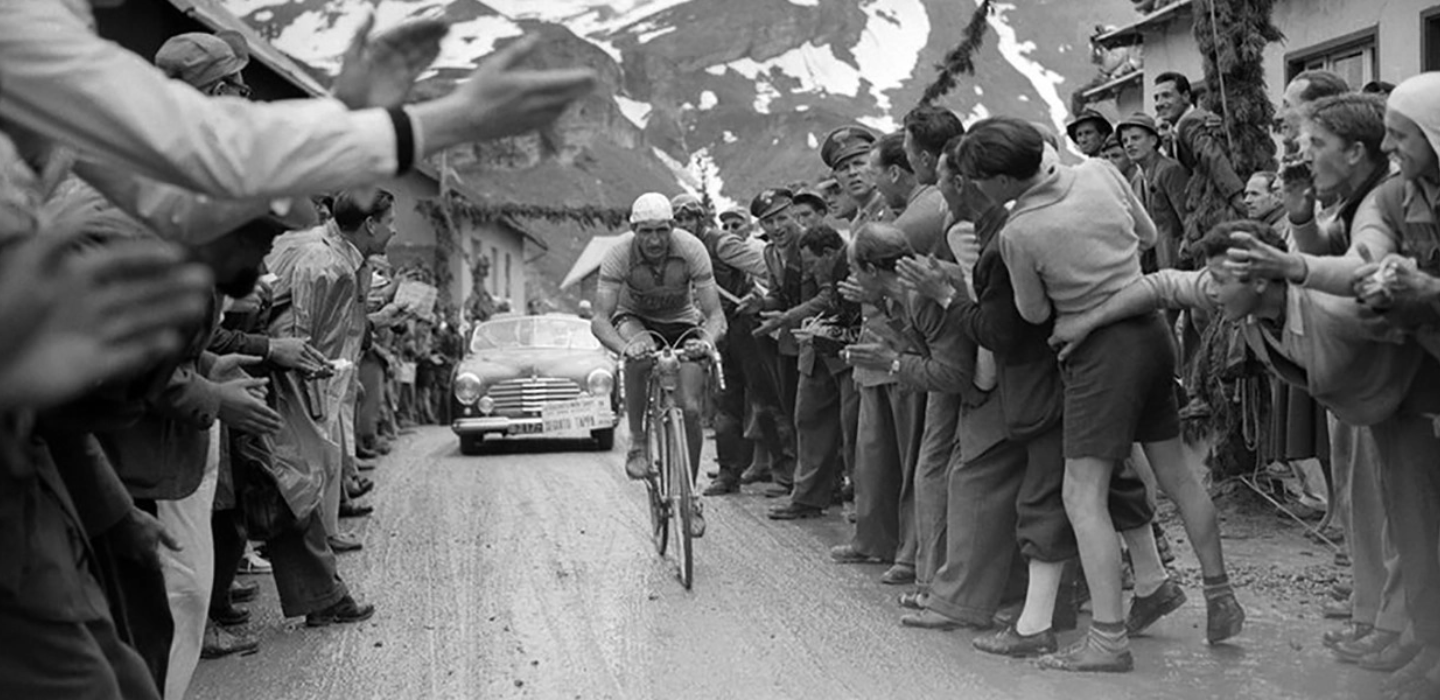
Since
1946
After 75 years of life, De Marchi is today the oldest company in the world specializing in cycling. No other brand has contributed in equal measure to the evolution of cycling apparel, introducing many of the innovations that have changed it forever. It is no coincidence that many of the greatest champions have worn De Marchi cycling clothing.


Since
1946
After 75 years of life, De Marchi is today the oldest company in the world specializing in cycling. No other brand has contributed in equal measure to the evolution of cycling apparel, introducing many of the innovations that have changed it forever. It is no coincidence that many of the greatest champions have worn De Marchi cycling clothing.

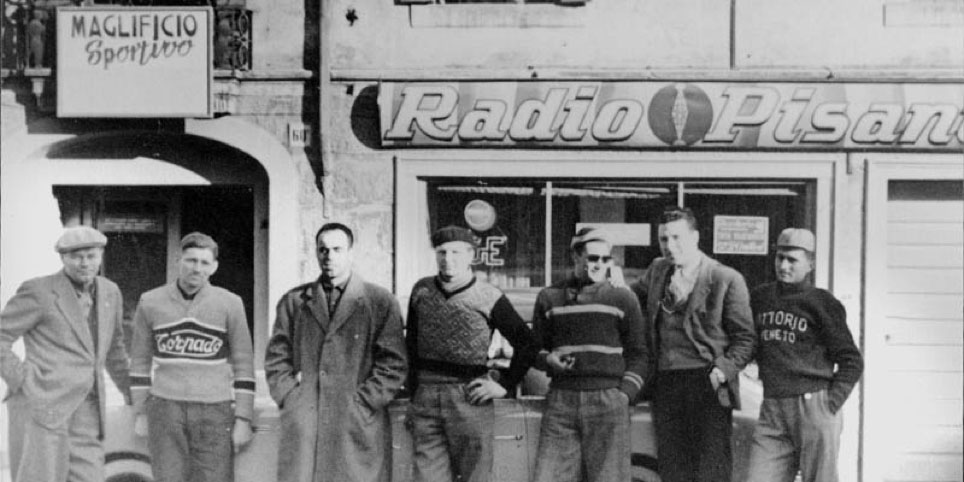
1946
Emilio De Marchi, born 1906, an Italian bicycle pioneer, established Maglificio Sportivo De Marchi, a sports knitwear workshop in Conegliano, Italy, with the intent to cater quality apparel to the local sports community and cyclists in particular. By modifying a now archaic, hand-operated knitting machine he was able to produce a special dense knit that helped define the first gold standard in cycling apparel.
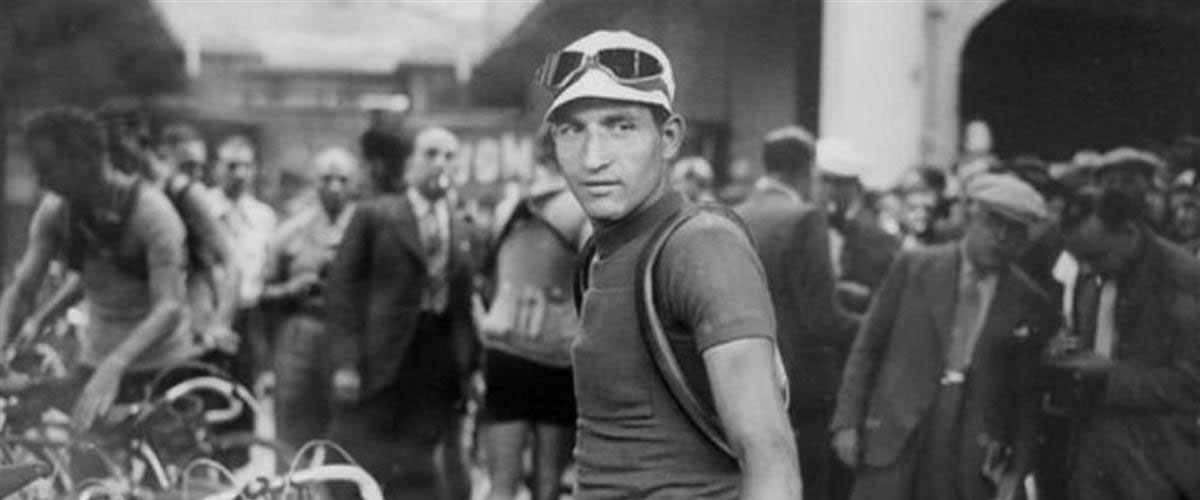
1948
On the brink of the civil war, a young Italian Republic was suddenly reunited by a not-so-young Gino Bartali winner the Tour de France. Nicknamed “Ginettaccio” for his explicit temper, Bartali was a good friend with Emilio De Marchi and an early ambassador for De Marchi apparel that he wore several times during his career as a rider for Legnano and his own Bartali team and later as a Directeur Sportif for both Vittadello and Pepsi teams.
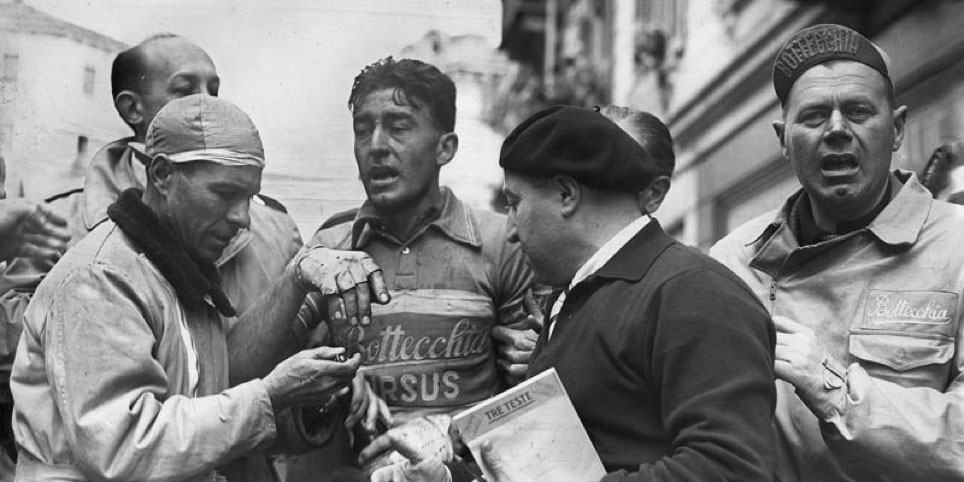
1951
A distraught Louison Bobet won the Milan-Sanremo Spring Classic on an epic sprint with fellow French rider Barbotin and allegedly suggested Emilio De Marchi (first right on this picture) to change buttons for zippers on cycling jerseys. Emilio gladly followed the hint coming from his rider and started searching for zippers, eventually founding Swiss’ RiRi to be the best available quality.
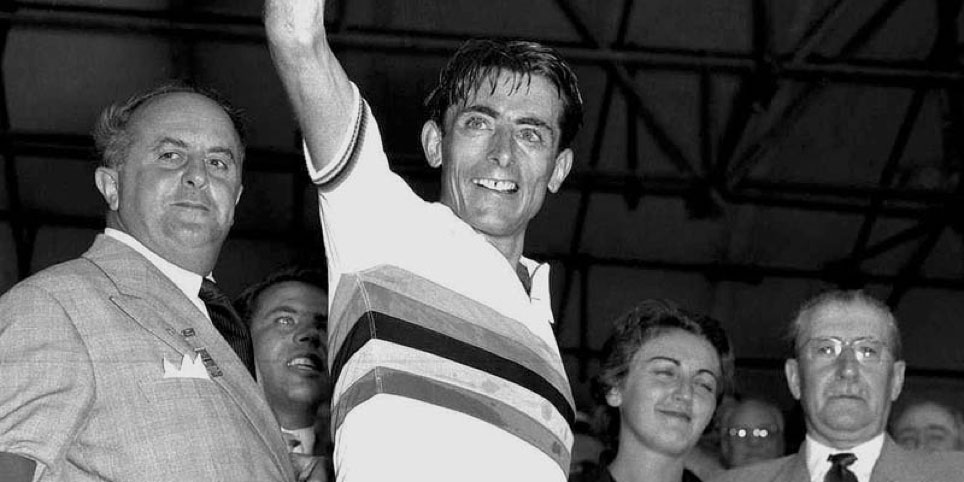
1953
Fausto Coppi, “il campionissimo”, the most winning and elegant cyclist of the golden age, achieved is major career accomplishment by winning the World Road Cycling Championship in Lugano, Switzerland. In his honor Elda De Marchi created the “rainbow” jersey that he wore many times for the next year as per tradition and that is now safely preserved on Museo Ghisallo, by Lake Como.
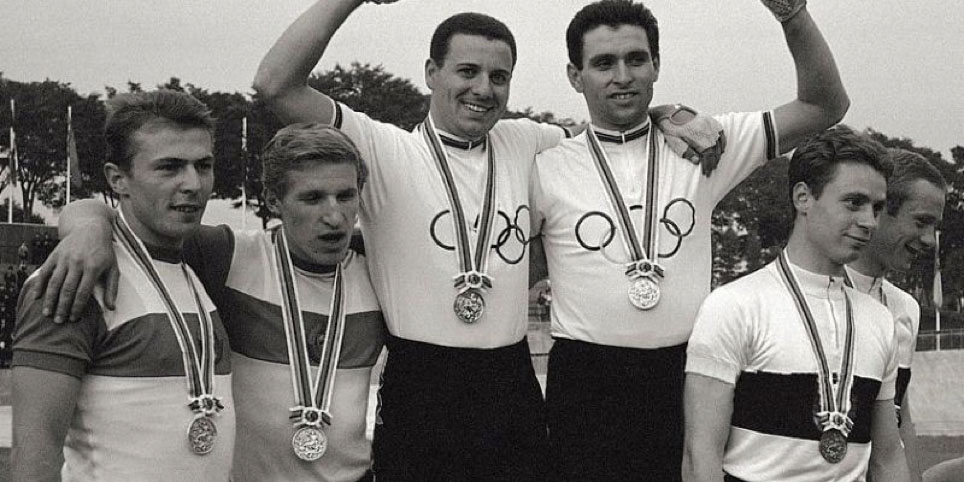
1964
A local amateur, Mario Zanin, riding for Unione Ciclistica Vittorio Veneto, won the Gold Medal at 1964 Olympics as a total underdog. Invited to represent Italy with Felice Gimondi, he ended up beating a much accredited crowd in an epic final group sprint that involved nearly 100 riders under a pouring Tokyo rain. First at the finish line for a mere hundredth of a second, the young Zanin recently recalled that Emilio De Marchi was waiting for him on his flight back to Venice with a brand new Olympic Champion jersey.
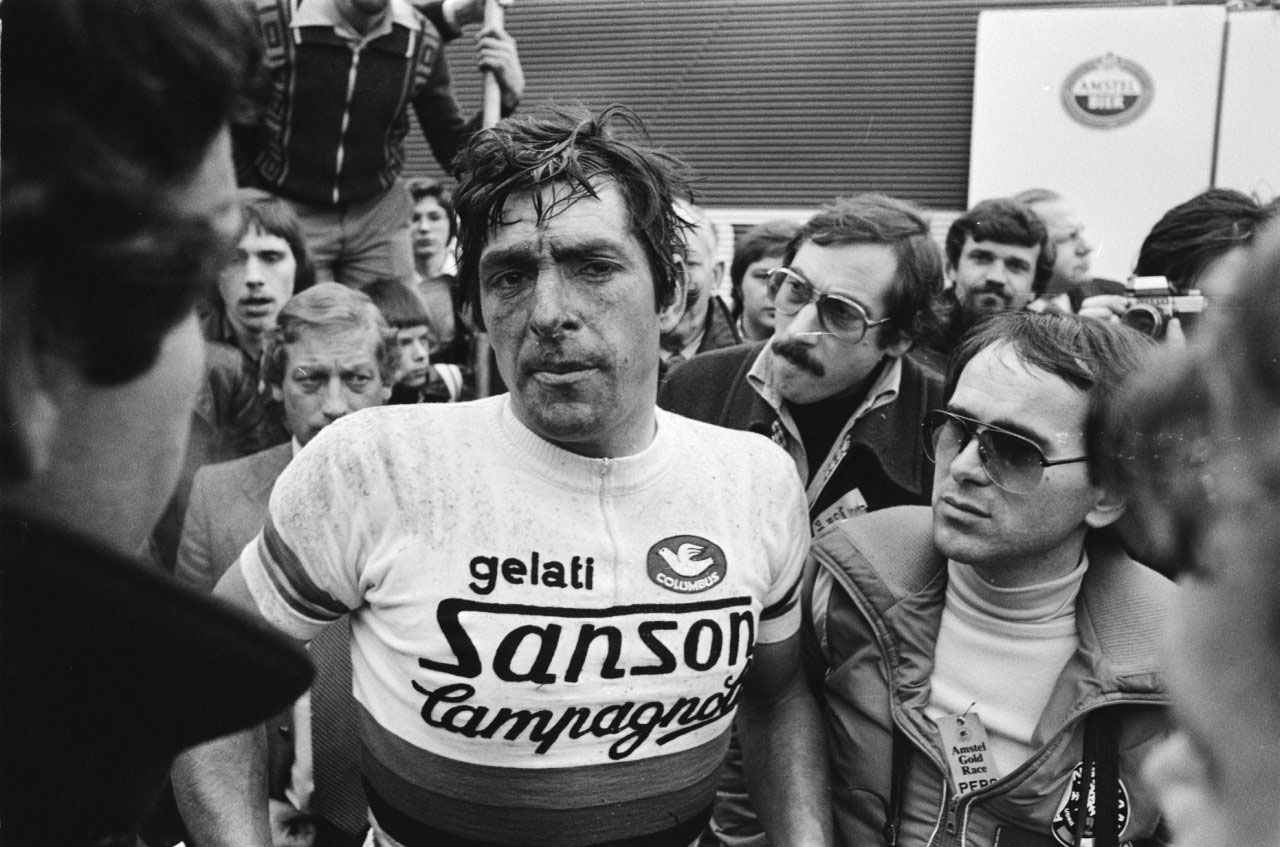
1978
By the mid-seventies, Francesco Moser was the new kid on the block in cycling. Nicknamed “lo sceriffo” (the sheriff), for his natural ability to lead the group, he became the most winning Italian cyclist of all times. After the Worlds in 1977, he won his first Paris-Roubaix classic with an impressive 20-KM breakaway the following year in his World Champion Sanson team jersey made by De Marchi.







